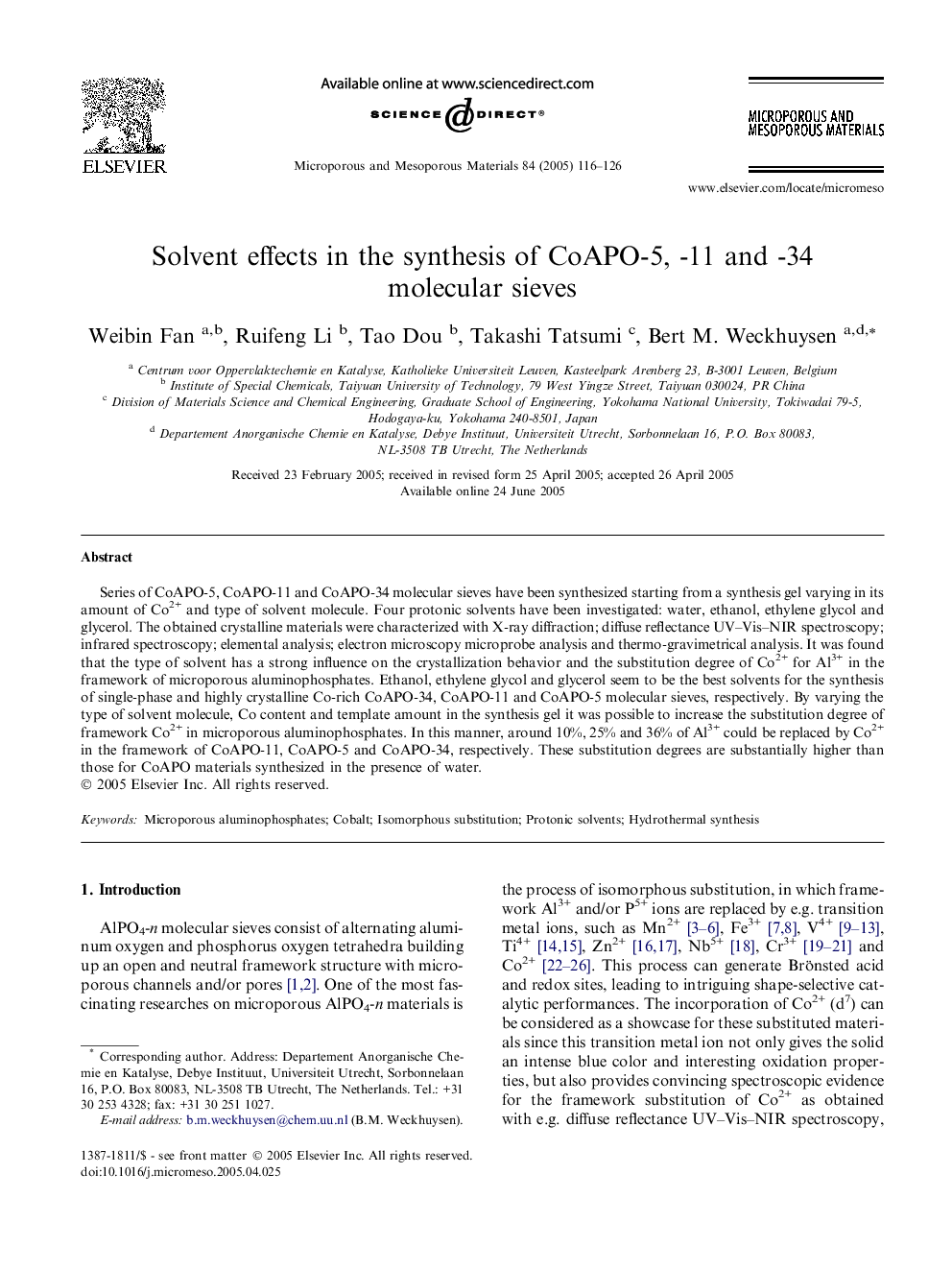| Article ID | Journal | Published Year | Pages | File Type |
|---|---|---|---|---|
| 9617596 | Microporous and Mesoporous Materials | 2005 | 11 Pages |
Abstract
Series of CoAPO-5, CoAPO-11 and CoAPO-34 molecular sieves have been synthesized starting from a synthesis gel varying in its amount of Co2+ and type of solvent molecule. Four protonic solvents have been investigated: water, ethanol, ethylene glycol and glycerol. The obtained crystalline materials were characterized with X-ray diffraction; diffuse reflectance UV-Vis-NIR spectroscopy; infrared spectroscopy; elemental analysis; electron microscopy microprobe analysis and thermo-gravimetrical analysis. It was found that the type of solvent has a strong influence on the crystallization behavior and the substitution degree of Co2+ for Al3+ in the framework of microporous aluminophosphates. Ethanol, ethylene glycol and glycerol seem to be the best solvents for the synthesis of single-phase and highly crystalline Co-rich CoAPO-34, CoAPO-11 and CoAPO-5 molecular sieves, respectively. By varying the type of solvent molecule, Co content and template amount in the synthesis gel it was possible to increase the substitution degree of framework Co2+ in microporous aluminophosphates. In this manner, around 10%, 25% and 36% of Al3+ could be replaced by Co2+ in the framework of CoAPO-11, CoAPO-5 and CoAPO-34, respectively. These substitution degrees are substantially higher than those for CoAPO materials synthesized in the presence of water.
Related Topics
Physical Sciences and Engineering
Chemical Engineering
Catalysis
Authors
Weibin Fan, Ruifeng Li, Tao Dou, Takashi Tatsumi, Bert M. Weckhuysen,
